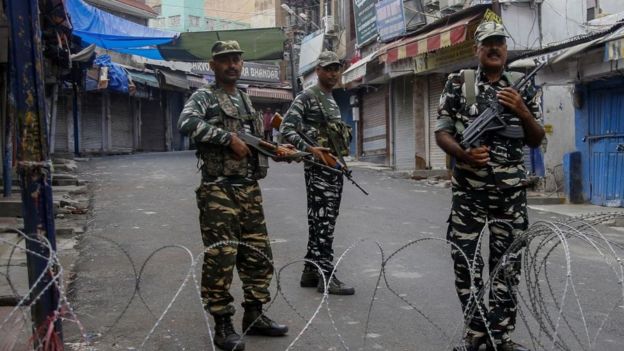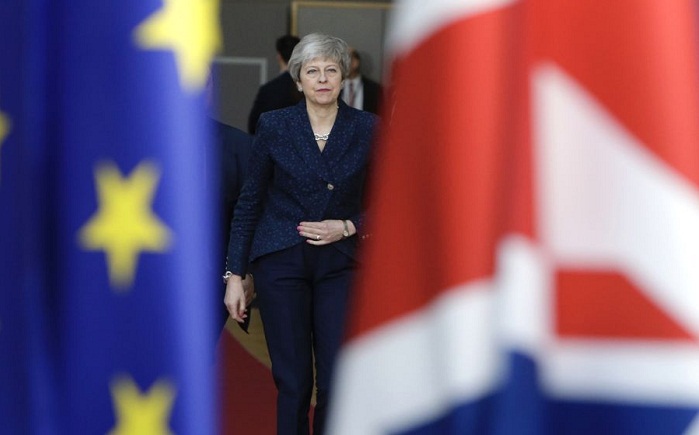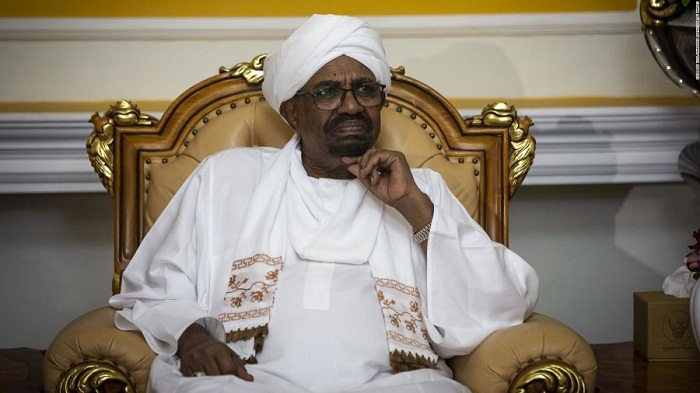Pakistan’s Premier Imran Khan liknked India’s actions in Kashmir to Nazism:
Relations August 12, 2020 0 COMMENTS
A Comprehensive Report on Kashmir Dispute:
Pakistan Prime Minister Imran Khan has likened India’s revoking of Jammu and Kashmir state’s autonomy to Nazi ideology, and warned the international community that inaction would be similar to appeasing Hitler.
Indian-controlled Kashmir, one of the world’s most sensitive regions, remains in lockdown amid a communications blackout, with landline connections, internet and mobile coverage all suspended. Tens of thousands of additional Indian troops have also been deployed into the already heavily militarized region to head off unrest after the government in New Delhi moved to scrap the region’s special status.
Politicians have reportedly been detained, journalists restricted in their reporting and human rights groups have warned of potential abuses due to the lack of international oversight enabled by the communications blackout.
In a series of tweets Sunday, Khan said India’s actions in Muslim-majority Kashmir were an attempt “to change (the) demography of Kashmir through ethnic cleansing” and asked whether the world would “watch and appease as they did Hitler at Munich?”
The 1938 Munich Pact was an agreement between between Germany, Great Britain, France and Italy that allowed Nazi Germany to annex part of Czechoslovakia.
Khan described the scrapping of Article 370 of India’s constitution that ensures Kashmir’s autonomy as an “impending genocide” and said the Hindu nationalist ideology of the Indian government — ruled by Prime Minister Narendra Modi’s Bharatiya Janata Party (BJP) — was inspired by Nazi ideology.
The “ideology of Hindu Supremacy, like the Nazi Aryan Supremacy, will not stop” in Indian-controlled Kashmir, “instead it will lead to suppression of Muslims in India and eventually lead to targeting of Pakistan.”
The tweets reiterated comments Khan made to parliament on Wednesday, where he said “the current government in India is acting like Hitler’s Nazi party.”
Khan’s office said the Prime Minister is reaching out to world leaders over the situation in Kashmir as he believes India’s move to change the region’s status is in violation of United Nations Security Council resolutions.
In a statement Saturday, Pakistan’s Foreign Minister Shah Mahmood Qureshi said he intends to take the issue to the UN Security Council.
Indian foreign ministry did not immediately respond to a request for a comment.
But Modi’s government has repeatedly insisted that the special provisions in Jammu and Kashmir have restricted investment and economic growth. Revoking Kashmir’s special status was one of the promises made by the Indian Prime Minister ahead of recent national elections.
In a televised speech on Thursday, Modi said the decision to strip the state of its autonomy would free it of “terrorism” and claimed that Article 370 had caused “separatism, terrorism, dynastic politics and corruption.” He also claimed the decision would bring stability to the restive territory.
“As a nation, we have taken a historic decision,” Modi said. “Due to the past system, the people of Jammu and Kashmir and Ladakh were deprived of many rights, which was a major obstacle in their development. That is now over.”
BJP National Secretary Ram Madhav responded to Khan’s tweet, saying the “threat to democratic world is from Pakistan-sponsored Jihadi terror, not from India.”
Monday is the first day of Eid al-Adha in Pakistan which is one of the two major Islamic holidays of the year. Pakistan’s foreign minister and major opposition leaders are scheduled to attend and offer Eid prayers in Muzaffarabad, the capital of Pakistan-controled Kashmir in solidarity with the Kashmiri people.
Region in turmoil
Kashmir is one of the world’s most dangerous flashpoints. Claimed in its entirety by both India and Pakistan, it has been the epicenter for more than 70 years of an often violent territorial struggle between the nuclear-armed neighbors.
On August 6, India’s parliament voted to reclassify the state of Jammu and Kashmir as a union territory, giving the government in New Delhi greater authority over the contested Muslim-majority region. The day before, the Indian government announced it was revoking Article 370, a constitutional provision which granted the state broad autonomy in setting its own law, except in a limited set of policy areas such as defense and foreign affairs.
Pakistan responded to New Delhi’s decision by downgrading diplomatic relations and suspending bilateral trade. Last week, Khan’s office repeated its claim that India’s moves were illegal, and urged the Pakistani military, which has warned it will “go to any extent” to fight the changes, to remain vigilant.
The scrapping of Article 370 of India’s constitution will allow non-residents to purchase property in Jammu and Kashmir, and apply for jobs or scholarships that had previously been reserved for residents. Experts fear the move could lead to a demographic change in Hindu-dominated India’s only Muslim-majority state.
The remote mountainous region of Ladakh, currently part of Jammu and Kashmir, will also be separated and turned into a standalone union territory, the government said.
RELATED ARTICLES
Recent Posts
- Big arrangements are made by a nervous Harris campaign to secure a close victory.
- Assault on peace: Hammas deadliest attack on israle on Oct 07 , instigated Midle East Crisis:
- Israel marked “solemn” anniversary commemorating 7/10 deadly attacks:
- Trump impeachment: Trump lashed out over his impending impeachment in an irate letter to Nancy Pelosi, accusing her of declaring “open war on American democracy”.
- hotness breaks its records in Australia :

